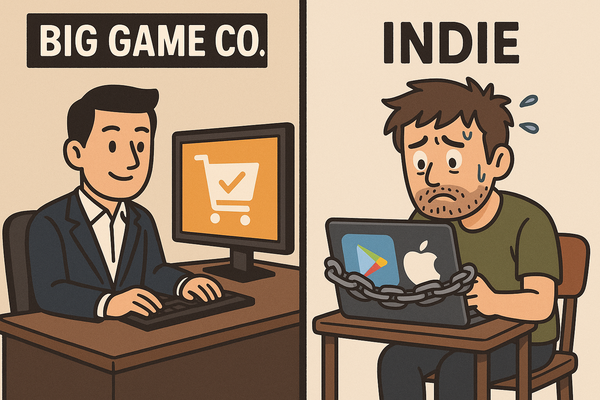The gaming industry is expanding the adoption of PC launcher-based in-house payment systems to escape the burden of up to 30% commission fees from Google and Apple app markets. As cross-platform environments become commonplace, a trend toward “app market exodus” centered on major companies is gaining momentum.
Meanwhile, indie game companies lacking capital and personnel remain heavily dependent on Google and Apple, raising concerns about deepening industry polarization.

According to industry sources on the 25th, NCSoft significantly expanded the payment share through its PC launcher (Purple) with the launch of new title “Aion 2”. Approximately 90% or more of total revenue since launch has been generated through the PC launcher. The company is also applying its in-house payment system to existing hit titles like “Lineage M” and “Lineage 2M” to improve profitability.
An NCSoft official stated, “While we don’t have a specific target for in-house payment share, we’re achieving the effect of reducing in-app commission fees from the previous 30% to approximately 10%,” adding “this proportion will expand further in the future.”
Netmarble and Nexon are also actively introducing in-house payment systems. One of the factors behind Netmarble’s third-quarter operating profit rebound was identified as a decrease in payment commission rates. PC launcher payments are being applied to major titles including “Solo Leveling: Arise”, “Raven 2”, and “Seven Knights Revolution”. Additionally, Nexon has introduced in-house payment systems centered on recently launched games such as “Dungeon & Fighter Mobile”, “Prasia Chronicles”, “HIT 2”, and “Mabinogi Mobile”.
In contrast, small and indie developers have been excluded from this trend. They absolutely lack the capital and personnel to build and operate in-house payment infrastructure.
Hong Young-ki, Vice President of the Korea Artificial Intelligence Game Association (formerly Korea Indie Game Association), lamented the difficulties, saying “Indie game companies find it difficult to invest resources in areas outside development as even their immediate release is uncertain,” and “while there is a system to reduce app market commissions for companies with revenue under 1 billion won, the benefits felt on the ground are minimal.”
The gap in marketing capabilities is also a major reason for indie game companies’ dependence on app markets. According to a Korea Communications Commission survey, domestic app developers’ usage rate of Google Play was 96.4% and Apple App Store 71.3%, showing clear dependence on giant platforms. While Smilegate’s “Stove” is cited as an alternative, it’s assessed as insufficient to replace the two major app markets in terms of user accessibility and global expansion.
Ultimately, small developers lacking promotional channels and marketing know-how are suffering from the “double burden” of simultaneously bearing platform commissions and advertising costs. Some game companies are known to be paying up to 50% of their average annual revenue to Google and Apple.
Experts observe that while major game companies’ “app market exodus” strategy is spreading with the goal of improving profitability, indie and small developers will find it difficult to avoid commission burdens due to institutional and market structures, deepening polarization. Without direct commission reductions from app markets, the survival of small game companies is expected to become even more difficult.
Lee Young-ki, a WiththePeople attorney representing in-app payment disputes, stated, “The difficulties of indie game companies lacking self-sufficiency are intensifying due to commission issues,” and “in the game industry where creativity and innovation are core, the weakening cost competitiveness of small game companies will ultimately lead to market entrenchment centered on a few major companies.”
swchun@chosunbiz.com
